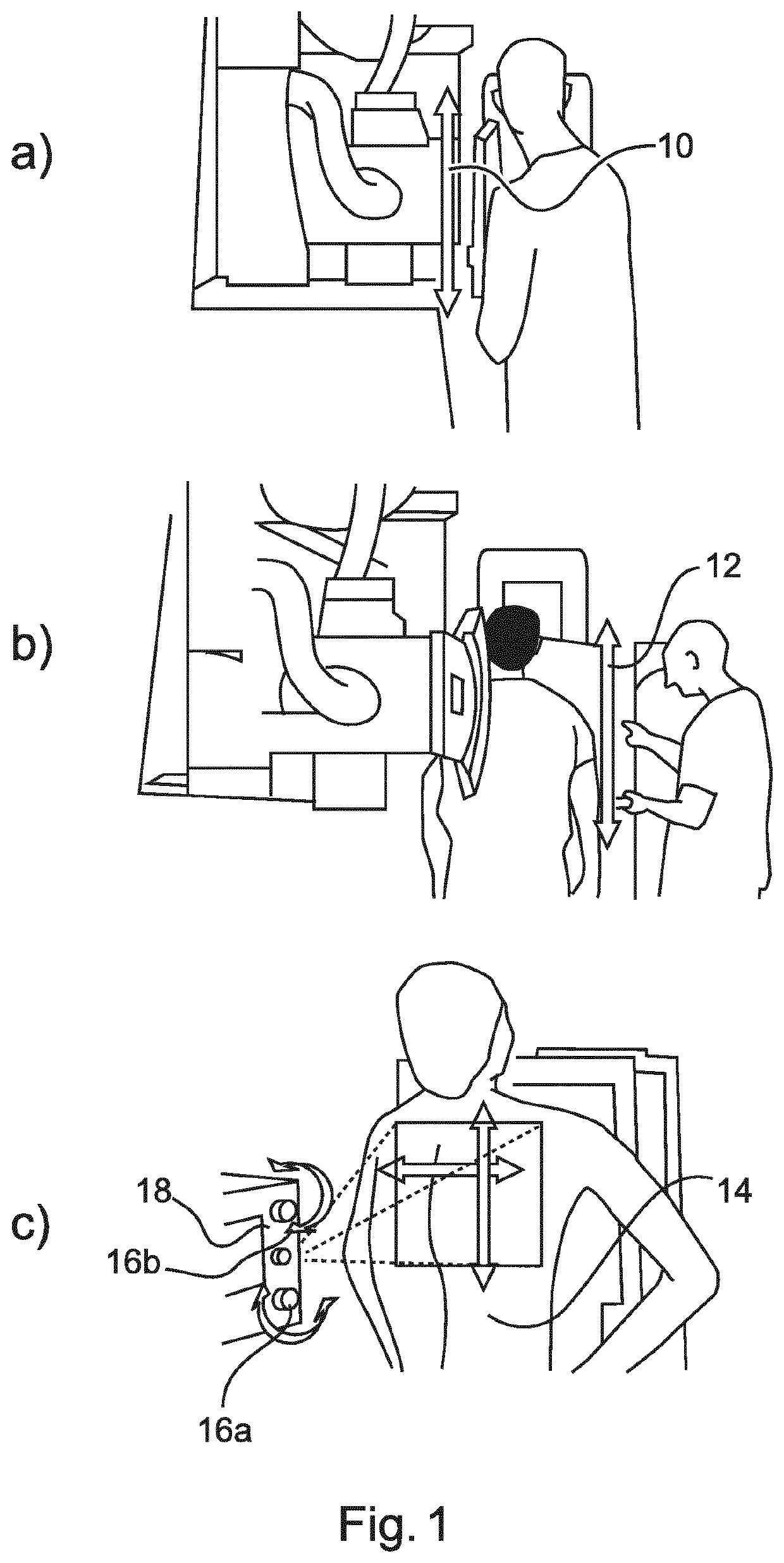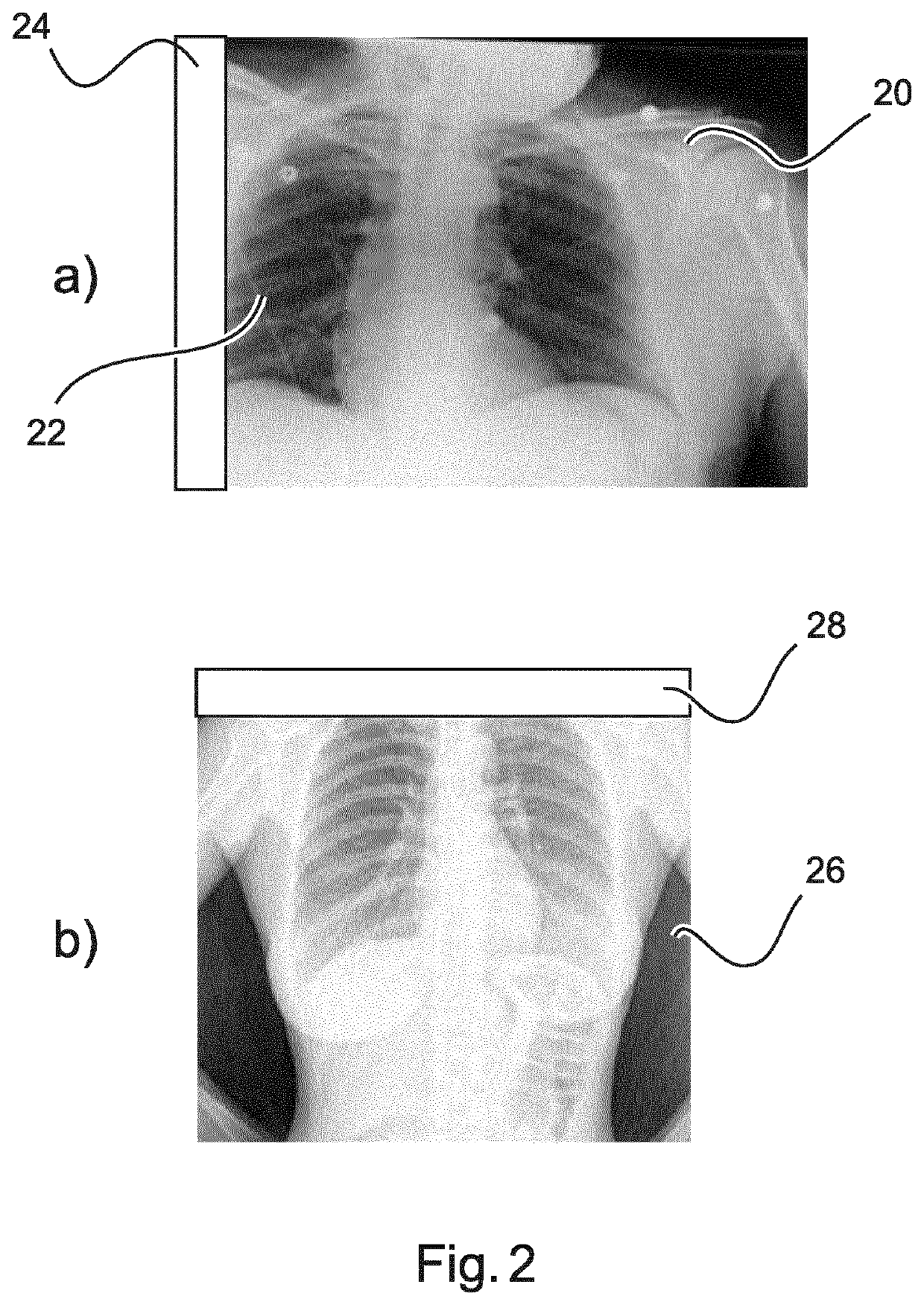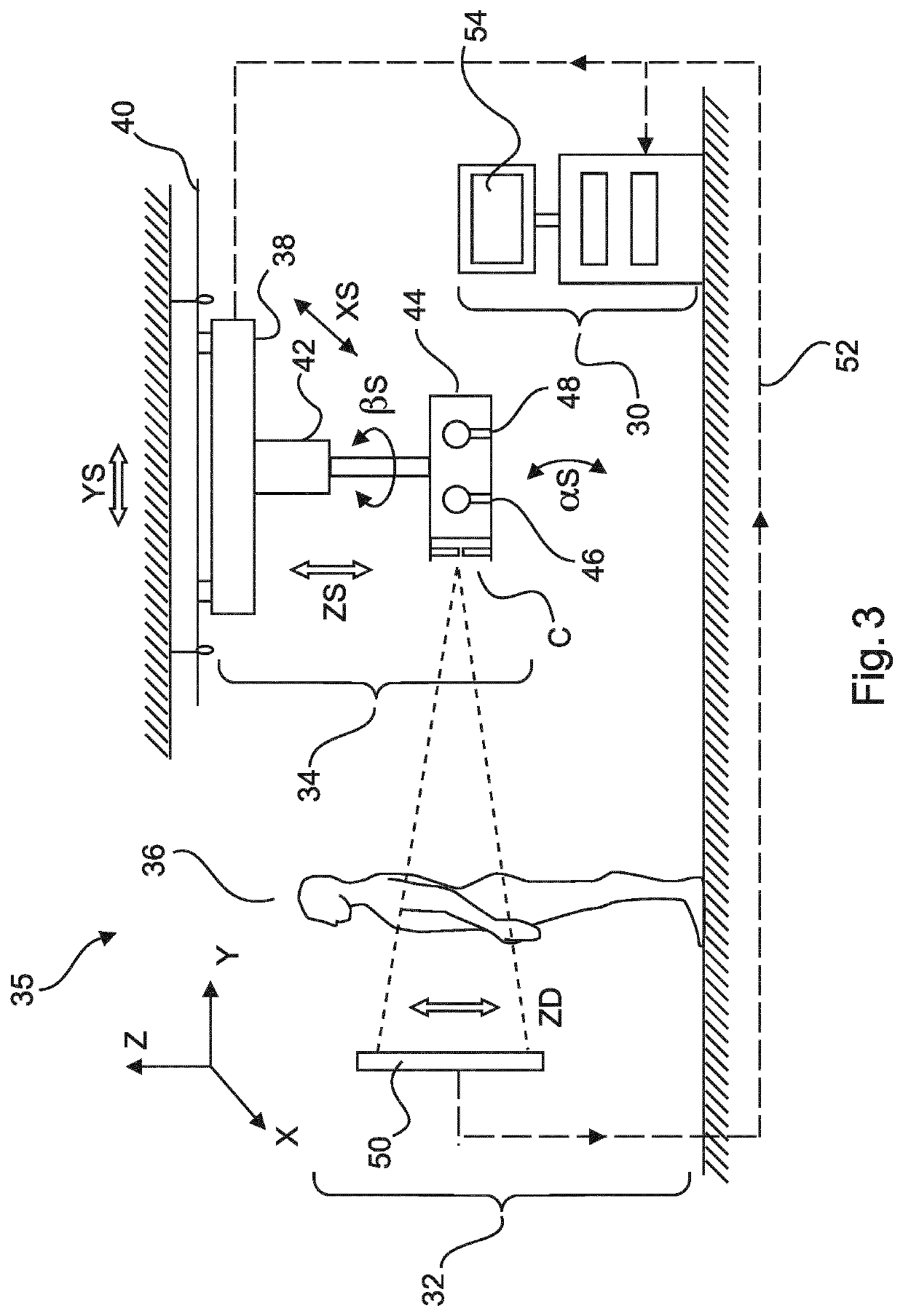X-ray apparatus having a composite field of view
a composite field and x-ray technology, applied in the field of x-ray apparatuses with composite field of view, can solve the problems of increasing the dose absorbed by the patient, inefficiency in the radiological department,
- Summary
- Abstract
- Description
- Claims
- Application Information
AI Technical Summary
Benefits of technology
Problems solved by technology
Method used
Image
Examples
Embodiment Construction
[0063]Chest radiography is the most commonly performed clinical imaging examination, and plays an important role in detecting and diagnosing many diseases of the thoracic anatomy. The image quality is dependent on a wide range of specific individual factors such as the inclusion of the appropriate anatomy within the field of view, the contrast of structures of interest with respect to the background signal, as well as several aspects of the positioning of the patient's thorax with respect to the X-ray acquisition equipment.
[0064]The task of setting the field of view (FOV) for an exposure is conventionally performed by a radiographer. The patient is initially positioned in a region of interest in front of an X-ray detector. Then, a visible light, shining from within the tube-head of the X-ray equipment, and matching to the field of the X-ray radiation pattern, is used to establish the field of view on a patient's body. The height of the tube-head may firstly be varied, and then the h...
PUM
 Login to view more
Login to view more Abstract
Description
Claims
Application Information
 Login to view more
Login to view more - R&D Engineer
- R&D Manager
- IP Professional
- Industry Leading Data Capabilities
- Powerful AI technology
- Patent DNA Extraction
Browse by: Latest US Patents, China's latest patents, Technical Efficacy Thesaurus, Application Domain, Technology Topic.
© 2024 PatSnap. All rights reserved.Legal|Privacy policy|Modern Slavery Act Transparency Statement|Sitemap



